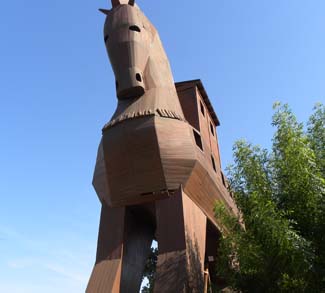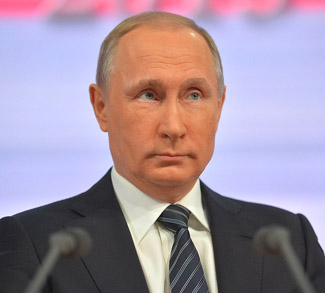Georgia finds itself at the center of a severe political crisis, marked by institutional conflict between the government and the presidency, allegations of electoral fraud, and deep polarization. The recent announcement by the government to suspend negotiations with the European Union until 2028 has triggered a wave of protests across the country.
The parliamentary elections on October 26 declared the ruling party, Georgian Dream, victorious following a highly polarized campaign. The party, founded by billionaire Bidzina Ivanishvili, has been accused by the opposition of pro-Russian leanings and undermining the country’s European integration path. Georgian Dream’s anti-Western rhetoric, characterized by attacks on alleged NGO interference in domestic politics and statements against the so-called “global war party” (which includes the EU and the United States), has further distanced the Caucasian nation from Brussels.
With over 54% of the votes, Georgian Dream retained control of the government. Although the Central Election Commission validated the election results, the opposition refused to recognize them, citing irregularities. President Salome Zourabichvili accused the government of electoral fraud, claiming that Russia interfered in the process. On November 25, opposition members boycotted the opening of the new legislature and the inauguration ceremony of the new government in Parliament. President Zourabichvili also abstained from attending the parliamentary session, reiterating the illegitimacy of the elections. In the days following the vote, the opposition organized demonstrations against alleged fraud, accusing Georgian Dream of acting under Moscow’s influence.
The spark that ignited the current civil protests was Prime Minister Irakli Kobakhidze’s announcement on November 28, where he declared the suspension of EU accession negotiations until 2028, accusing Brussels of exerting pressure and blackmail. He also rejected EU budgetary funds, which have long supported reforms in public and judicial sectors.
The Prime Minister’s statements provoked widespread outrage among the population, increasingly driven by strong pro-European sentiment. During a conference, President Zourabichvili declared that the government’s decision amounted to a declaration of war against its own people. She later appealed to the international community, requesting support to organize new and fair elections.
Kobakhidze’s decision starkly contradicts Georgia’s constitution, which commits the country to actively pursuing Euro-Atlantic integration. Article 78 stipulates that state authorities must make every effort to integrate Georgia into the EU and NATO, reflecting the clear will of the people.
The protests in Georgia represent the culmination of growing public frustration, fueled by perceptions of national sovereignty persistently threatened by Russian pressure. The suspension of EU negotiations has ignited an already volatile situation. Demonstrations have spread nationwide, with massive mobilization, particularly among the youth. Protesters have faced harsh repression from law enforcement, who have used tear gas and water cannons to disperse crowds, resulting in hundreds of injuries. The independent television Pirveli aired footage showing protesters and journalists brutally beaten and arrested by police. Rustaveli Street has become the epicenter of the protests, where demonstrators wave Georgian and EU flags, demanding a European future for Georgia. These protests are not led by an opposition political force but by a collective desire to preserve the country’s independence and democracy, avoiding a return to the orbit of the Russian Federation. The demonstrations signify not only a struggle for Georgia’s future but also resistance against a potential slide back into an authoritarian and subordinate past under Moscow.
In a statement, Prime Minister Kobakhidze defended the decision to suspend EU negotiations until 2028, asserting that the EU accession process remained uncompromised. He reiterated that joining the Union remains a government priority and would occur “with pride and dignity.” The prime minister also accused the EU ambassador to Georgia, Pawel Herczyski, of blackmail and of promoting a disinformation campaign on behalf of the opposition and NGOs. At a press conference, Kobakhidze condemned the protests, claiming they were led by violent groups instigated by foreign agents, and stated that the government would take all necessary measures to protect Georgia from the threat of liberal fascism. He also praised law enforcement for upholding constitutional order, asserting that they acted “with higher standards than those in Europe and America.”
The Secretary General of the Council of Europe Alain Berset, expressed his view regarding the situation, expressing concern about increased polarization and political deadlock happening in Georgia. After speaking with both President Zourabichvili and Prime Minister Kobakhidze he urged all involved parties to stop the escalation and called for an investigation into reports of excessive police force during protests. He reaffirmed the Council of Europe’s support for Georgia’s European aspirations and democratic development, stressing the need for dialogue with all stakeholders, including civil society. Berset committed to continuing assistance through the Council’s Action Plan and announced plans to visit Georgia soon to help address the crisis and promote stability.
Furthermore, the US Helsinki Commission expressed deep concern over Georgia’s shift towards authoritarianism, stating that such a trajectory endangers the nation’s democratic future and its aspirations for Euro-Atlantic integration. The statement, signed by Commission Chairman Joe Wilson and Congressman Steve Cohen, praised the resilience of the Georgian people and urged the government to uphold democratic principles by conducting free and fair elections monitored by independent observers. In May, the Commission’s House introduced the MEGOBARI Act (megobari, friend in Georgian) which stands for “Mobilizing and Empowering Georgia for Building, Accountability, Resilience, and Independence.”
The initiative aims to strengthen Georgia’s democracy, human rights, and rule of law while countering Russian influence. The act emphasizes the US commitment to supporting Georgia’s Euro-Atlantic integration. The Act proposes measures to reinforce democratic practices, including support for free elections, governmental accountability, and resilience against authoritarian pressures.
Georgia’s history is deeply marked by struggles to defend its sovereignty and independence. In 1921, Soviet occupation ended three years of independence of the Democratic Republic of Georgia, inaugurating 70 years of political and cultural oppression. In the 1990s, the country faced a dramatic internal crisis. During the Abkhazian War (1992–1993), Russian-backed rebels carried out ethnic cleansing against Georgians, resulting in over 5,000 civilian deaths and 250,000 displaced persons. Later, in 2008, Russian troops invaded Georgia under the pretext of protecting South Ossetian separatists, consolidating control over the breakaway regions.
Today, Georgia stands at a new historical crossroads. The government’s decision to suspend EU negotiations and its approach to suppress protests risk alienating the country from the Western sphere, moving it closer to a model akin to Belarus. The latter is, in practice, a Russian satellite, characterized by political and economic dependence on Moscow.
The current protests are not only a rejection of the pro-Russian turn but also a cry of resistance against the further erosion of sovereignty and democracy. However, suppose the government persists on an authoritarian path and the West fails to exert adequate pressure. In that case, Georgia risks falling into a geopolitical limbo, drifting further from its goal of becoming a fully democratic nation integrated into the Western world.
The views expressed in this article belong to the author(s) alone and do not necessarily reflect those of Geopoliticalmonitor.com.




